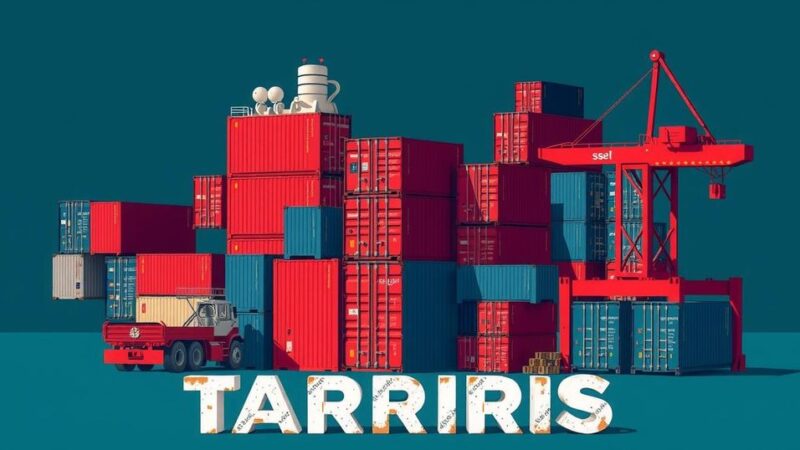Canada is working to strengthen trade ties with Brazil through the Mercosur-Canada Free Trade Agreement amid U.S. tariff pressures. Opportunities exist in sectors such as oil and gas, renewable energy, and technology-sharing initiatives. Brazilian exports to Canada have seen growth, while imports from Canada have declined. The focus is on diversifying markets and forging new partnerships.
Canada is aiming to enhance its trade relationships with Brazil, particularly through the advancement of the Mercosur-Canada Free Trade Agreement. Evelyne Coulombe, Canada’s ambassador to Germany, stated, “I believe there are opportunities to deepen our trade relationship.” The recently signed long-term free trade agreements with Chile and Ecuador underscore Canada’s commitment to finalizing its agreement with Mercosur.
The Mercosur-Canada partnership, initiated in March 2018, has undergone multiple negotiation rounds without reaching a conclusion yet. Ms. Coulombe emphasized that “this is a significant opportunity,” especially in the context of the current tariff war with the United States, which has spurred Canada to seek new trade avenues.
Following President Donald Trump’s recent imposition of tariffs on imports from Canada and Mexico, Canadian officials expressed shock, as Ms. Coulombe remarked, “We have been neighbors and allies for many years under a free trade agreement.” She highlighted Canada’s $1 billion investment in border security and efforts to combat fentanyl trafficking, emphasizing the importance of diversifying trade relations.
Canada’s focus on Brazil is also seen as a chance to strengthen business connections with Germany, Europe, and Latin America as reliance on a single partner poses risks. During an announcement regarding over 200 Canadian companies’ participation in Hannover Messe 2025, Ms. Coulombe reiterated the necessity to diversify markets.
Brazilian exports to Canada rose 9.44% in 2024, amounting to $6.31 billion, led by gold, calcined alumina, cane sugar, and aircraft. However, imports from Canada decreased by 17.5%, totaling $2.7 billion due to currency fluctuations.
Expanding trade relations between Brazil and Canada holds potential benefits, particularly in the oil and gas sector and renewable energy through technology-sharing initiatives. Ms. Coulombe mentioned opportunities to collaborate in the IT sector and scientific research, as well as interests in sugarcane and agrotechnology. The Brazil-Canada Chamber of Commerce has also established a business development office in Ribeirão Preto, São Paulo, to explore new commercial opportunities.
In conclusion, Canada is actively pursuing deeper trade relations with Brazil through the Mercosur-Canada Free Trade Agreement amidst the challenges posed by U.S. tariffs. This effort is rooted in the desire for market diversification and exploration of opportunities across various sectors, particularly oil and gas, renewable energy, and agrotechnology. The recent growth in Brazilian exports to Canada highlights the potential for further collaboration and economic development between the two nations.
Original Source: valorinternational.globo.com






